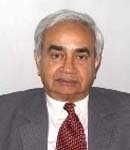South Asian Dialectic
Defence Management in India: An Agenda for Parrikar
20 Nov, 2014 · 4749
Prof PR Chari highlights the value of bringing a fresh mind to bear on old issues
Being a Rashtriya Swayamsevak Sangh (RSS) mukhya pracharak (chief preacher) endeared Manohar Parikkar to Modi and earned him the Defence portfolio. Parikkar is a modern man. He graduated in Metallurgical Engineering from the Indian Institute of Technology, Mumbai, and has proven his administrative capabilities as a two-term Chief Minister of Goa. Parikkar’s shift to New Delhi resembles that of YB Chavan, the highly regarded Chief Minister of Maharashtra, who was brought to New Delhi by Jawaharlal Nehru following India’s traumatic defeat in the Sino-Indian border conflict in 1962.
Parikkar would need to display the same acumen as YB Chavan did when he joined the Union Cabinet. India’s defeat in the border conflict had left the prestige of the defence apparatus in tatters. What was the situation obtaining? I have noticed elsewhere that “A blame game started with the political, civilian and military establishments accusing each other of incompetence, naïveté and worse. Civil-military relations had, in fact, crumbled…” Chavan sought initially to assuage the bruised egos in South Block, adjudicate between mutual accusations, and restore a semblance of normality in the higher echelons of the defence apparatus. The very first change effected was to start the institution of Morning Meetings that provided an informal setting for interactions between the Ministers in the MoD, Chiefs of the three Services, Secretaries in the Ministry of Defence, and the Financial Adviser. The unstated purpose of these meetings was to develop a rapport between the estranged segments of the higher defence apparatus and persuade them to work together harmoniously.
Civil-military relations have again reached a new low in New Delhi following the date of birth controversy raised by the former Chief of Army Staff, General VK Singh. His approaching the Supreme Court and later, prosecution for criminal defamation, are unprecedented. Charges and counter-charges of malfeasance made against the highest officials in the military hierarchy have also been unprecedented, taking a huge toll on the armed forces’ morale. The Modi Government, in its wisdom, gave a ticket to General VK Singh, got him elected, and inducted him into the Council of Ministers. How will these actions heal the wounds inflicted on Army morale and civil-military relations? This problem needs to be faced head on by the new Defence Minister.
Parikkar would have been well advised to make soundings and develop cogent views on the defence apparatus before indulging in policy declarations. But, he has opined that user trials and commercial negotiations must be completed quickly to expedite procurement decisions. Thereby, equipment would be delivered quickly, greater transparency would be ensured, and costs reduced, since suppliers do inflate costs to allow for delays. Coming to maintenance of advanced weapon systems, Parikkar felt that “the best solution is to ask the company to manufacture in India,” which raises several awkward negative issues like the general state of the economy, technical education standards and skill sets available in the country.
However, there are three other supervening and conceptual issues that he should address in the interests of higher defence management.
• First, a realistic effort is needed to recognise the variegated threats to national security that require countering by the Services. In future, internal security challenges would multiply beyond the capacity of the paramilitary forces to handle them. This is already occurring with Left Wing Extremism in Central India. The Army and Air Force have steadily expanded their roles here, despite their reservations. A clear policy in this matter will enable appropriate decisions being taken on future armed forces’ training, equipment and force structures.
• Second, personnel management requires urgent attention for two major reasons. Parikkar should get details of the litigation that has rocked the Ministry of Defence and Services Headquarters over the years, analyse their content, and take pre-emptive steps to mitigate the underlying grievances. Apart from the time and energy involved in dealing with a huge volume of litigation, their numbers is a sad reflection of the dissatisfaction in the armed forces. Another aspect of personnel management relates to retention of officers, especially at the cutting edge level of Captains/Majors in the Army and the two other Services, which has become a serious issue.
• Third, the ubiquitous subject of economy in defence expenditure cannot be ignored. Governments are notoriously remiss in controlling their own expenses and Defence establishments lead this insouciance. A serious exercise to address waste could provide some surprises. For instance, it would be found that different units using the same equipment, eg. MiG-21 aircraft, have different manning patterns. More serious thought is also required on whether units like radar stations or electrical and mechanical workshops could be managed by civilian personnel. Currently, they are manned by uniformed personnel who cost some three times as their civilian counterparts, without any commensurate improvement in efficiency or reliability.
These issues and examples could be multiplied, highlighting the value of bringing a fresh mind to bear on old issues.


